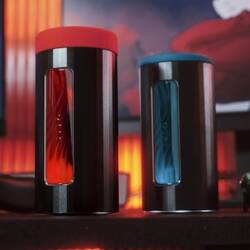Melbourne University Launches World’s First Sex-Toy Design Course
RMIT is teaching designers how to build the future of sex tech.

Historically, personal sex devices have always formed a highly profitable, if rarely talked about, area of the economy. However, over the last few decades this has begun to change, with sex toys moving from a taboo niche into increasing mainstream visibility.
Adult entertainment is also in the midst of record highs, with experts estimating that the global sales of sex toy amounts to approximately $15 billion. But while the industry only continues to grow, the consumer market is still flooded with disappointed complaints about lackluster quality and generic design.
Thankfully in recent years there has been a pushback against complacency, with a growing wave of innovators looking to solve the industry’s creative stagnation. And now an Industrial Design lecturer from the Royal Melbourne Institute of Technology (RMIT), Judith Glover, has launched the world’s first university course focusing exclusively on sex-toy design.
Students in her class each have to undertake an individual project, choosing what area of the subject they want to focus on.
“Their concepts had to be grounded in good research and evidence. So the first few weeks was the group mapping out the area of sexual health and wellbeing,” explained Glover, in an interview with Future of Sex.
“One student did a project about sex toys and older women, which she has carried on into an honours project with me this year.”
“Other types of projects the student have looked into were about Prostitus, Pregnancy and the Perenium, how to help women with sexual trauma enjoy sexual practice again, how to keep a long-term relationship sexually fresh with game playing, Vaginismus and erectile dysfunction,” she said.
Good design, good user experience
Glover believes that her students learn important lessons about the design field from her classes, describing the challenges as some of the most interesting and difficult she’s come across. There are issues that have to be considered from an ergonomic and psychological perspective, which require a User-Centered (UCD) approach, backed up with evidence-based research.
“It makes the students experience how ‘good’ design comes from ‘good’ research and ‘good’ methodology, which is really missing in most commercial sex toys on the market.”
The feedback from students and designers has also been overwhelmingly positive, with Glover describing her students as approaching the subject with a passionate maturity. There are even plans to eventually expand the program to the post-graduate level.
“Even if the student doesn’t want to get involved in that industry these methods are applicable to any other design project. Industrial Design is the discipline of innovation and commercialisation, so we want to teach our students to identify both new areas and problems that haven’t been tackled yet, and then how to do a project in an area without lots of precedents.”
“I think a lot of other students were a bit scared to join the studio but once they heard how much fun we were having and how interesting the topics were I got lots of interest in running it again,” she said.
“We also had some press about it and the article seemed to go far and wide and I’ve have lots of designers and other people contacting me wanting to do the course.”
Image source: Christina Xu
Leave a reply
You must be logged in to post a comment.

















